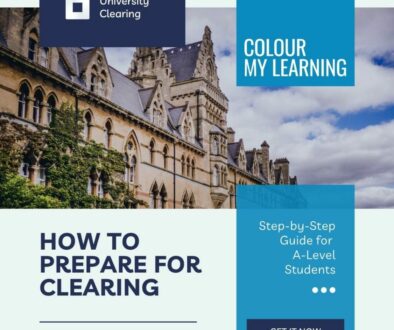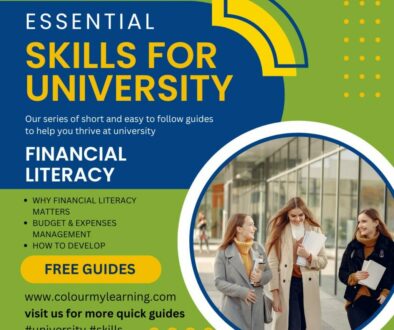Help! I’m Not Sure I Want to Go to University!
Deciding whether or not to go to university is a significant choice that can affect many aspects of your life, including your future career, personal growth, and financial situation. It’s perfectly normal to feel unsure or even overwhelmed by this decision. You’re not alone in wondering whether university is the right path for you.
If you’re asking yourself, “Is university the right choice?”, this post is here to help. We’ll walk you through common reasons for feeling unsure, explore alternatives to university, and guide you toward making a decision that fits your goals and interests.
1. Why Do You Feel Unsure About University?
The first step in figuring out your path is understanding why you’re unsure. Take a moment to reflect on what’s causing your hesitation. Is it the idea of committing to more academic study, or perhaps the financial burden of tuition fees? Maybe you’re not sure what you want to do with your future and don’t want to commit to a specific course or career path just yet.
Here are some common reasons why people feel unsure about going to university:
You’re Not Sure What to Study: Many students feel pressured to choose a subject or career when they’re still figuring out their interests. If you’re uncertain about your future, committing to a three or four-year course can feel overwhelming.
You’re Tired of Academic Learning: After years of school, it’s natural to feel burned out. If the idea of more lectures, exams, and essays doesn’t appeal to you right now, you’re not alone. Many students take a break from academic study before deciding whether university is right for them.
You’re Worried About the Financial Cost: University can be expensive, and the idea of taking on student debt can make anyone hesitant. If finances are a concern, it’s worth exploring scholarships, bursaries, and student loan options to see what’s available to you.
You’re Considering Other Options: Perhaps you’ve been hearing about alternatives like apprenticeships, vocational training, or starting work right after school. These options offer a more hands-on approach and might appeal to you more than traditional academic study.
Reflection Exercise:
Write down the top 2 or 3 reasons why you’re unsure about going to university. Is it more about the commitment to study, financial concerns, or something else? This will help you gain clarity as you move through the decision-making process.

2. Exploring Alternative Pathways
If you’re not sure about university, don’t worry—there are plenty of other options that might suit your goals and learning style better. Let’s take a closer look at a few of the most popular alternatives.
Apprenticeships
An apprenticeship allows you to gain practical skills and experience while earning a wage. You’ll split your time between on-the-job training and classroom study, typically working toward a qualification. Apprenticeships are available in a wide range of industries, from engineering and construction to healthcare and digital marketing.
Example: Emma wasn’t excited about going to university, so she decided to apply for an apprenticeship in digital marketing. She spent part of her week working for a company and the other part studying toward a professional qualification. Now, she’s fully qualified and working full-time in her field—all without the debt of university.
For more information on apprenticeships and how to apply, check out: UK Government Apprenticeships Website
Vocational Courses and Training
Vocational training programs are designed to teach you the practical skills needed for specific jobs. These courses are shorter and more focused than university degrees, making them a great option if you prefer hands-on learning.
Example: James wasn’t interested in attending university, so he enrolled in a two-year vocational course in graphic design. After graduating, he found a job at a design agency and has been working his way up ever since.
Check out vocational qualifications on: City & Guilds
Starting Work Immediately
If you’re eager to start earning money or building work experience, you might consider jumping straight into the workforce. Many industries offer entry-level positions where you can learn on the job and work your way up.
Example: Max didn’t want to go to university, so he started working at a tech company as an intern. Over time, he learned valuable skills and eventually secured a full-time role. Today, he’s working in a field he loves and is earning a good salary without needing a degree.
You can find job listings and apprenticeships on: Indeed UK and National Careers Service
Taking a Gap Year
A gap year gives you time to reflect, travel, gain work experience, or volunteer before making a big decision like going to university. Many students find that a year off helps them return to their studies with a clearer sense of direction.
Example: Sophie took a gap year after finishing school and used the time to work part-time while traveling. During that year, she discovered her passion for environmental science, which she later pursued at university.
For ideas on gap year programs, check out: Gap Year Association and Real Gap Experience
Reflection Exercise:
Research at least one alternative to university that interests you. Write down the pros and cons of that option compared to attending university. What excites you about this alternative, and what might you miss out on?

3. The Benefits of Going to University
While university isn’t the only option, it does come with its own set of benefits that might align with your personal or professional goals. Even if you’re feeling unsure, here’s why university might still be worth considering:
A Degree Can Open Doors
Some professions, such as medicine, law, and engineering, require a university degree. If you have a clear career goal that needs academic qualifications, university might be the best option to get you where you want to go.
Personal Growth and Independence
University can help you grow in ways beyond academics. It’s an opportunity to live independently, meet people from diverse backgrounds, and develop life skills like time management, budgeting, and self-discipline.
Example: While studying history at university, Rachel learned to manage her time effectively between coursework and part-time work. She also met lifelong friends through the university’s debate club, where she built her confidence in public speaking.
Career and Networking Opportunities
Many universities have strong connections with industries and offer internships, job placements, and networking events that can help you build your professional network before you even graduate.
Example: Josh studied business at university and took part in a work placement program with a local start-up. That experience led to a full-time job offer before he even graduated.
Time to Explore
University can be a great option if you’re unsure about your long-term goals. Many degrees allow you to take electives in different subjects, giving you time to discover what you’re truly passionate about.

4. Ask Yourself: What Do You Want from Your Future?
Deciding whether to go to university is a deeply personal decision, and it’s important to think about your long-term goals. Here are a few questions to help you reflect:
Do I have a career in mind that requires a degree? Careers like teaching, architecture, or law require specific qualifications. If your dream career falls into this category, university is a necessary step.
How do I feel about academic study? Are you excited about the idea of continuing your academic journey, or do you prefer more practical, hands-on learning experiences?
Am I ready to commit to full-time study for several years? Consider whether you feel motivated to dedicate the next three to four years to academic work, or if you’re leaning toward gaining practical experience through work or vocational courses.
What kind of lifestyle do I want? Do you see yourself thriving in a university environment with lots of social and extracurricular activities, or do you feel more drawn to the working world or more direct skill-based learning?
Reflection Exercise:
Write down your ideal future. What does your day-to-day life look like? Are you working in an office, traveling for work, or running your own business? What type of education or experience will help you get there?

5. It’s Okay to Take Your Time
If you’re feeling unsure, remember that there’s no rush to make a decision. Taking a gap year or spending time exploring your options can help you feel more confident when the time comes. Whether you choose to work, volunteer, or travel, the experience you gain will be valuable no matter what path you choose.
Example: David wasn’t sure about going to university after finishing school, so he spent a year working part-time and volunteering with a local charity. That year helped him build skills in project management and gave him the time he needed to decide that social work was the right path for him.
If you want to explore different options or simply need more time to think, that’s perfectly okay. University will always be there if you decide it’s the right path for you later on.
6. Take Our Quiz: Is University the Right Path for You?
Still not sure? Our quiz can help you figure out if university is the best fit for your goals and preferences. It will guide you through a series of questions to help you reflect on what’s important to you, whether you’re leaning toward university or thinking about other options.

Conclusion
Feeling uncertain about university is completely normal. Whether you choose to pursue higher education, explore apprenticeships, or dive into the working world, the key is to choose the path that aligns with your goals and interests. Take your time, do your research, and trust yourself to make the right decision. No matter what you choose, remember that your path is unique, and there are many ways to achieve success.










